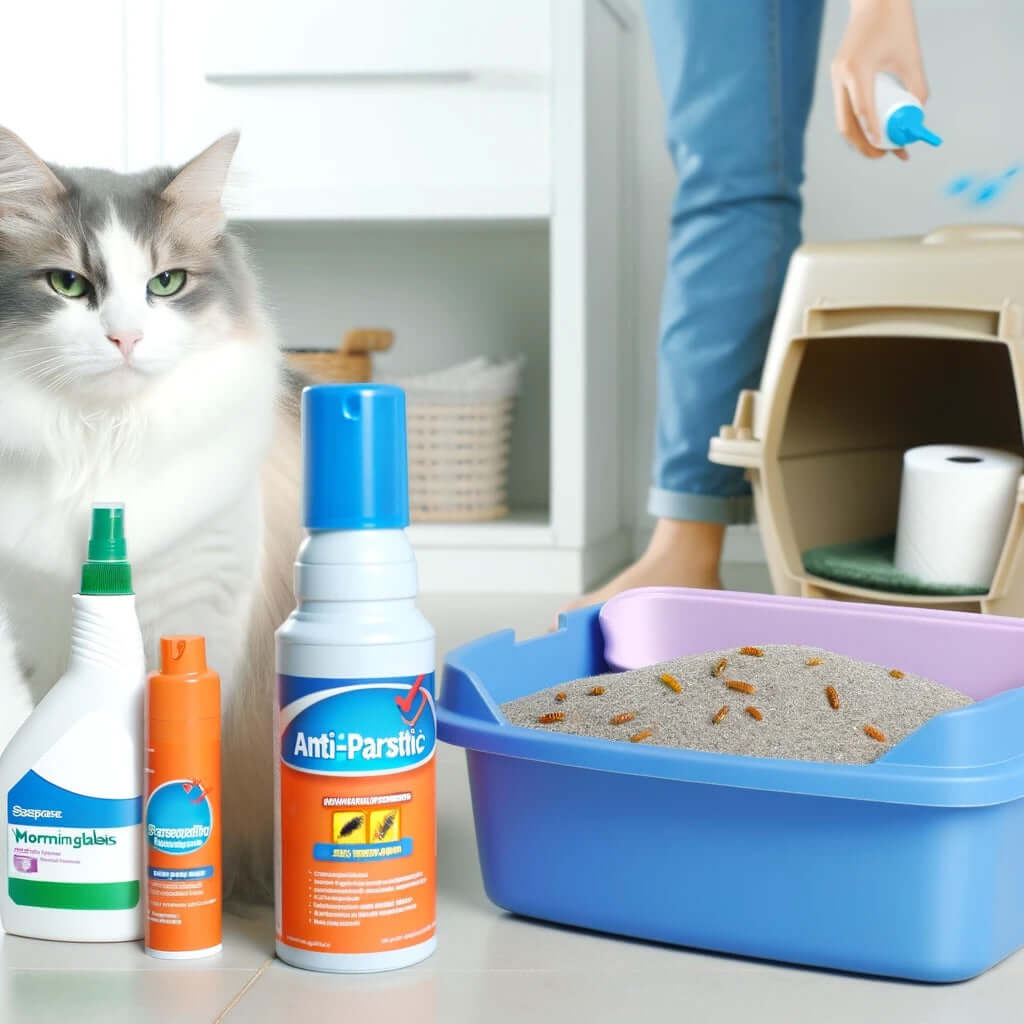Parasites, such as fleas, ticks and worms, pose significant health risks to cats. Prevention and rapid treatment are key:

-
Use antiparasitic products: Regularly apply preventative treatments recommended by a veterinarian to control internal and external parasite infestations.
-
Maintain rigorous hygiene: Regularly clean your cat's living areas, including the litter box, and wash their blankets and beds to minimize the risk of reinfestation.
-
Watch and act quickly: Be alert for signs of infestation, such as excessive scratching or the presence of small black dots in their fur, and consult a veterinarian for appropriate treatment.
Bibliography :
- Bowman, D.D. (2014). "Georgis' Parasitology for Veterinarians". 10th ed. W.B. Saunders.
- Coles, T.B., & Dryden, M.W. (2014). "Insecticide resistance in fleas". International Journal for Parasitology: Drugs and Drug Resistance, vol. 4, no. 3, pages 207-215.
- Gunn-Moore, D.A., & Shenoy, C.M. (2004). "Feline internal parasites". Veterinary Clinics of North America: Small Animal Practice, flight. 34, no.



Compartir:
The importance of play in kittens: development and socialization
Techniques for Socializing a Fearful or Aggressive Cat